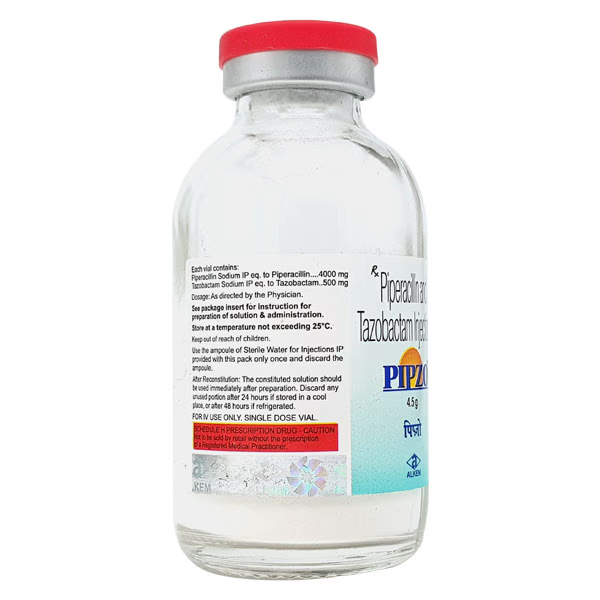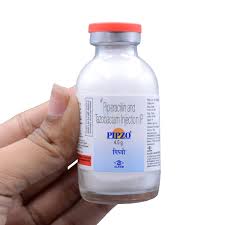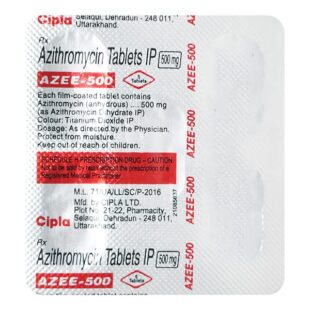Product Overview
Pipzo 4.5 g Injection is a combination antibiotic used to treat a wide range of bacterial infections. It works by eliminating the bacteria responsible for the infection.
Administration
This injection should be given by a healthcare provider and is not intended for self-administration. Your doctor will determine the appropriate dosage and frequency based on the nature and severity of your infection. It is important to follow your doctor’s instructions carefully.
Possible Side Effects
Common side effects may include nausea, vomiting, diarrhea, and skin rash. Some individuals might also experience reactions at the injection site such as pain, swelling, or redness. If these symptoms persist or worsen, consult your healthcare professional.
Precautions
Before starting treatment, inform your doctor if you have any allergies to antibiotics or if you have kidney or liver conditions, as your dosage might need adjustment. When used under medical guidance, this injection is generally safe during pregnancy and breastfeeding.
Uses
Pipzo Injection is effective in treating infections of the ear, sinuses, throat, lungs, urinary tract, skin, teeth, joints, and bones caused by susceptible bacteria.
Mechanism of Action
The injection contains two active components:
-
Piperacillin, a penicillin-class antibiotic that inhibits bacterial growth by interfering with the formation of their protective cell walls.
-
Tazobactam, a beta-lactamase inhibitor that protects Piperacillin from bacterial enzymes that could otherwise degrade it, improving its efficacy against resistant bacteria.
Benefits
Together, these ingredients help clear infections more effectively by overcoming bacterial resistance. Symptoms usually improve within a few days; however, completing the full prescribed course is crucial to fully eradicate the infection and prevent resistance development.
Safety Information
-
Alcohol: There are no known adverse effects from alcohol consumption while using this medication.
-
Pregnancy: Considered safe when prescribed by a doctor, though human studies are limited.
-
Breastfeeding: Thought to be safe, as the drug is unlikely to significantly pass into breast milk.
-
Driving: If you experience dizziness or other symptoms that impair concentration, avoid driving and operating machinery.
-
Kidney Disease: Use with caution; dosage adjustments may be necessary.
-
Liver Disease: Generally safe, but consult your healthcare provider for personalized advice.
Missed Dose
If a dose is missed, contact your doctor for instructions on how to proceed safely.
Vendor Information
- Address:
- No ratings found yet!


























































































































Reviews
There are no reviews yet.